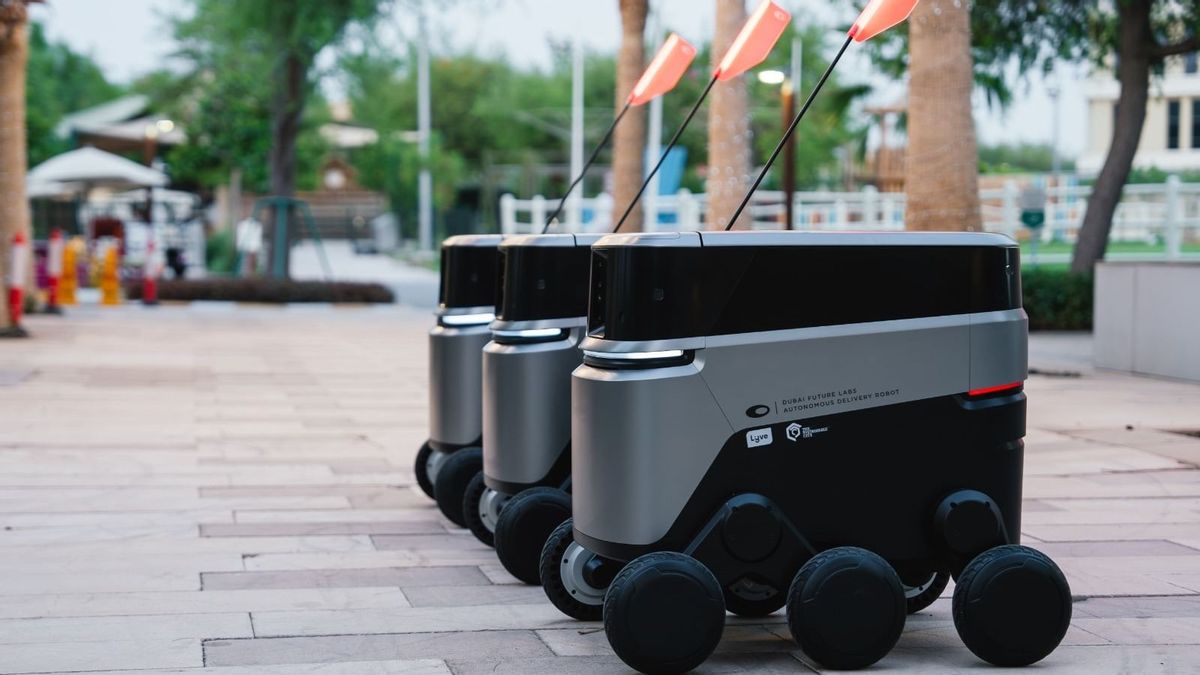JAKARTA - Dubai Sustainable City, an environmentally friendly and energy-efficient area in Dubai, United Arab Emirates launched an introductory robotic pilot program that promised waiting time below 30 minutes last month.
There are three delivery robots according to an autonomous request that will start trials within the community, providing delivery services from all restaurants and shops within the plaza area to residents.
The program, which was launched in collaboration with Dubai Future Labs and Lyve Global, aims to improve safety, hygiene, and cost efficiency while reducing congestion, carbon emissions and waiting times, the state news agency WAM reported, as reported by The National 20 August.
These robots will navigate the sidewalks safely and independently, find charging stations when needed and eliminate the need for human intervention.
This is not the first initiative in the emirate. Last year, after a successful trial during Expo2020, seven "takabot" robots were launched at Dubai Silicon Oasis to serve around 300 houses.
The project is part of a three-month pilot program by online food ordering company Talabat, Dubai Roads and Transport Authority and Dubai Integrated Economic Zone Authority to increase delivery service options.
Shopping for food, fast food, and online shopping is a feasible option to use automatic transportation and help reduce emissions for close delivery.
SEE ALSO:
But globally, the picture is a little different. Amazon stopped testing the delivery robot home in October 2022 amid slowing sales growth.
The e-commerce company appears to be investing in drone delivery, with Prime Air, hoping to launch the service in third US states while expanding its services in Italy and the UK by the end of 2024.
It is known, the use of robots in restaurants and retail stores is also increasingly popular.
Analysts at Statista, a German company specializing in market and consumer data, expect spending on robotics to jump to 210 billion US dollars by 2025 as more and more countries invest in autonomous machines.
The English, Chinese, Japanese, Arabic, and French versions are automatically generated by the AI. So there may still be inaccuracies in translating, please always see Indonesian as our main language. (system supported by DigitalSiber.id)


















